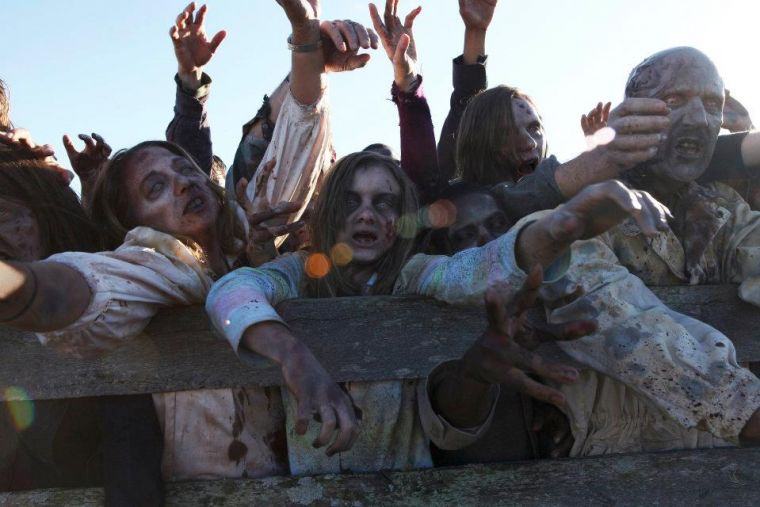Why I'm Genuinely Worried About A Zombie Apocalypse This Halloween
Zombies don't traditionally wander the streets asking for money or sweets; they're more into blood and gore, generally speaking. For reasons not entirely clear to me, they've become part of the whole debased Halloween observance. Gone are the innocent days of white sheets and witches' hats. The streets will soon be infested with cheerful groups of tomato ketchup-daubed children with plastic axes through their heads. It's all terribly unbiblical.

But is it? Read the prophet Zechariah, and he's so talking about a zombie apocalypse.
"This is the plague with which the Lord will strike all the nations that fought against Jerusalem: Their flesh will rot while they are still standing on their feet, their eyes will rot in their sockets, and their tongues will rot in their mouths. On that day people will be stricken by the Lord with great panic. They will seize each other by the hand and attack one another" (14:12-13). 28 Days Later, anyone? Dawn of the Dead?
There are even going to be zombie animals: "A similar plague will strike the horses and mules, the camels and donkeys, and all the animals in those camps" (15).
Now (do I really need to say this?) Zechariah is NOT REALLY TALKING ABOUT ZOMBIES. He's using vivid language to describe the terrible consequences faced by those who fight against God and his people. The whole zombie thing, in today's popular imagination, is pure Hollywood.
But the idea behind it – that the dead can be re-animated and come back to wreak destruction on the living – has a much longer pedigree. The name is believed to come from a Congo word, nzambi, and found its way into English via Haiti and its voodoo religion. It reflects fears in many cultures that the spirits of the dead can persist and do harm.
So biblically speaking – and leaving Zechariah aside – is there anything to be said for this?
In terms of the spirits of the dead returning, there is the strange story in 1 Samuel 28 of Saul and the Witch of Endor, who raised the spirit of Samuel. However we're meant to understand that, it's a long way from the sort of re-animated body envisaged by zombie aficionados.
But maybe there's a different way of thinking about this altogether – not so box-office friendly but far more challenging.
When someone said to Jesus he would follow him after he had buried his father, Jesus said: "Follow me, and let the dead bury their own dead" (Matthew 8:22).
Jesus tells John to write to the "angel of the church in Sardis", saying: "I know your deeds: you have a reputation for being alive, but you are dead."
What Jesus is saying in these cases is that there are people walking around among us, to every appearance alive, but dead in everything that really matters. There are zombie Christians, who no longer have a living relationship with God. Those who fail to hear and respond to the message of salvation are dead inside, lacking the new life Christ offers. They don't look any different, but they are.
Christians can get terribly wound up about Hollywood zombies, and it's true that much of how they're portrayed is pretty unsavoury. But the real spiritual danger is elsewhere: it's that Christians go through the motions of faith and lose its living reality, and that we become indifferent to the fact that so many people don't know the Saviour at all.
That's the sort of zombie apocalypse we should really worry about.











